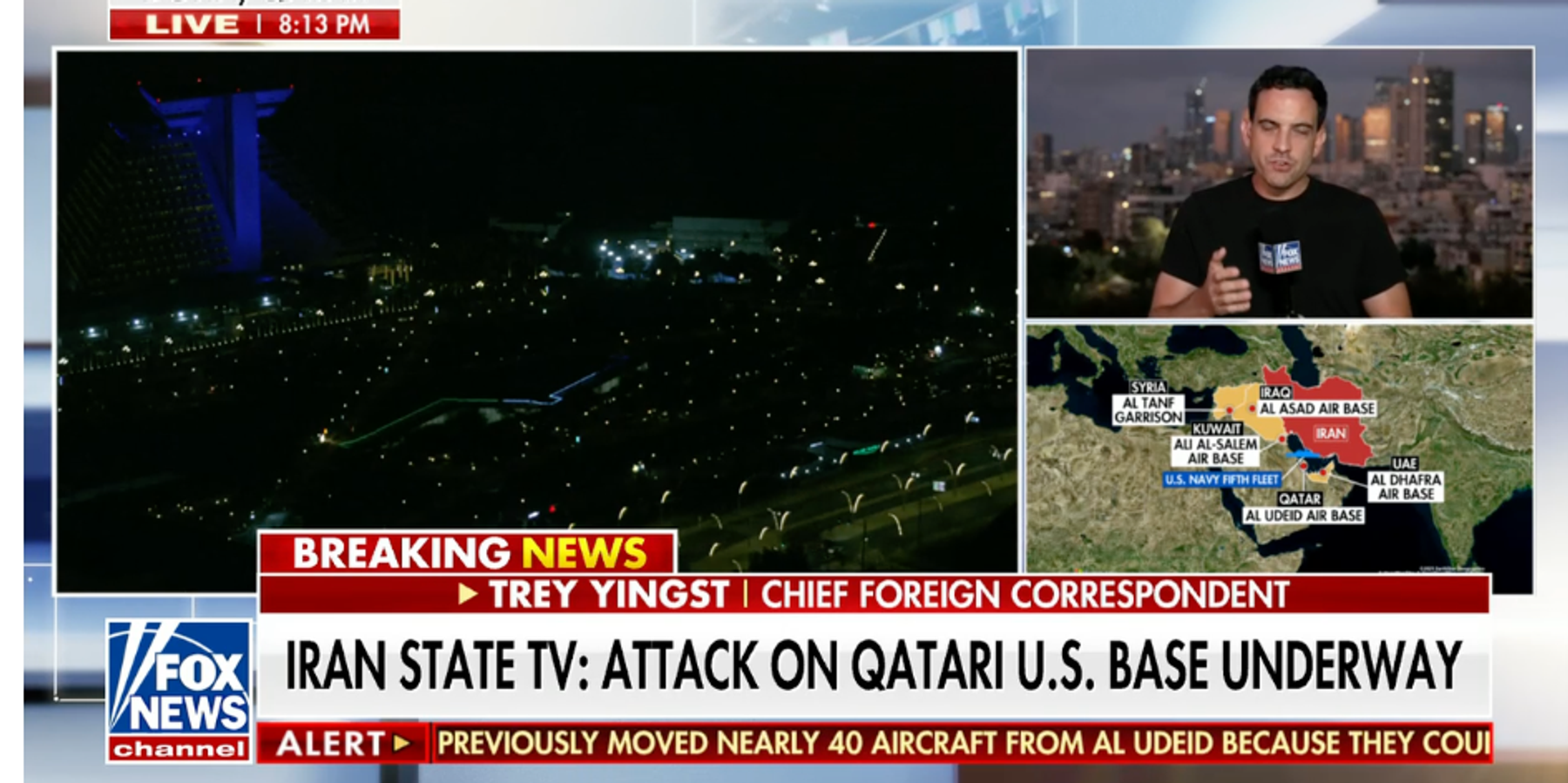Iran launched missiles at U.S. bases in Qatar today in what is being called "calculated retaliation" for Saturday's U.S. airstrikes on Iran’s nuclear sites.
Iranian officials had reportedly sent advanced warning of the attack on Al Udeid Air Base, which had already been evacuated. President Donald Trump said the missiles were intercepted and no casualties reported.
Trita Parsi, co-founder and Executive Vice president of the Quincy Institute for Responsible Statecraft, wrote on X that the attacks may have been limited — for now. But they should not be read as merely symbolic or face-saving.
"Of course (they) have significant implications for Iran's relations with these [Gulf Cooperation Council] states — but also [GCC] relations with the US, mindful of their opposition to Trump's strikes and anger at him for disregarding their security and interests," he wrote. "And Tehran may also seek to show Trump that they are willing to strike back harder and further than he might have anticipated."
He said there is a chance they would be limited in the ways that both sides telegraphed their retaliations in 2020 so as to avoid escalation.
"There is a scenario, similar to the 2020 strikes against Iraqi bases, in which both sides call it quits after one round of fire," said Parsi. "But I find that scenario unstable because of the Israeli element. Israel will continue to strike Iran and vice versa, and as long as that is the case, the Israelis will continue to put relentless pressure on Trump to join the war in various ways."
Annelle Sheline, Middle East research fellow at the Quincy Institute, noted that Trump had "needlessly put U.S. troops in the Middle East in Iran’s crosshairs" with Saturday's attacks.
“As commander in chief, the safety of Americans should be his highest priority, yet by attacking Iran when it posed no threat, Trump demonstrated his complete disregard for U.S. troops stationed in the region, as well as those who will lose their lives if the war escalates.”
Neighboring Gulf states Bahrain and Kuwait, which also host U.S. military bases, closed their air spaces after the attack; they have since re-opened them.
Article is being updated as story is develops

















